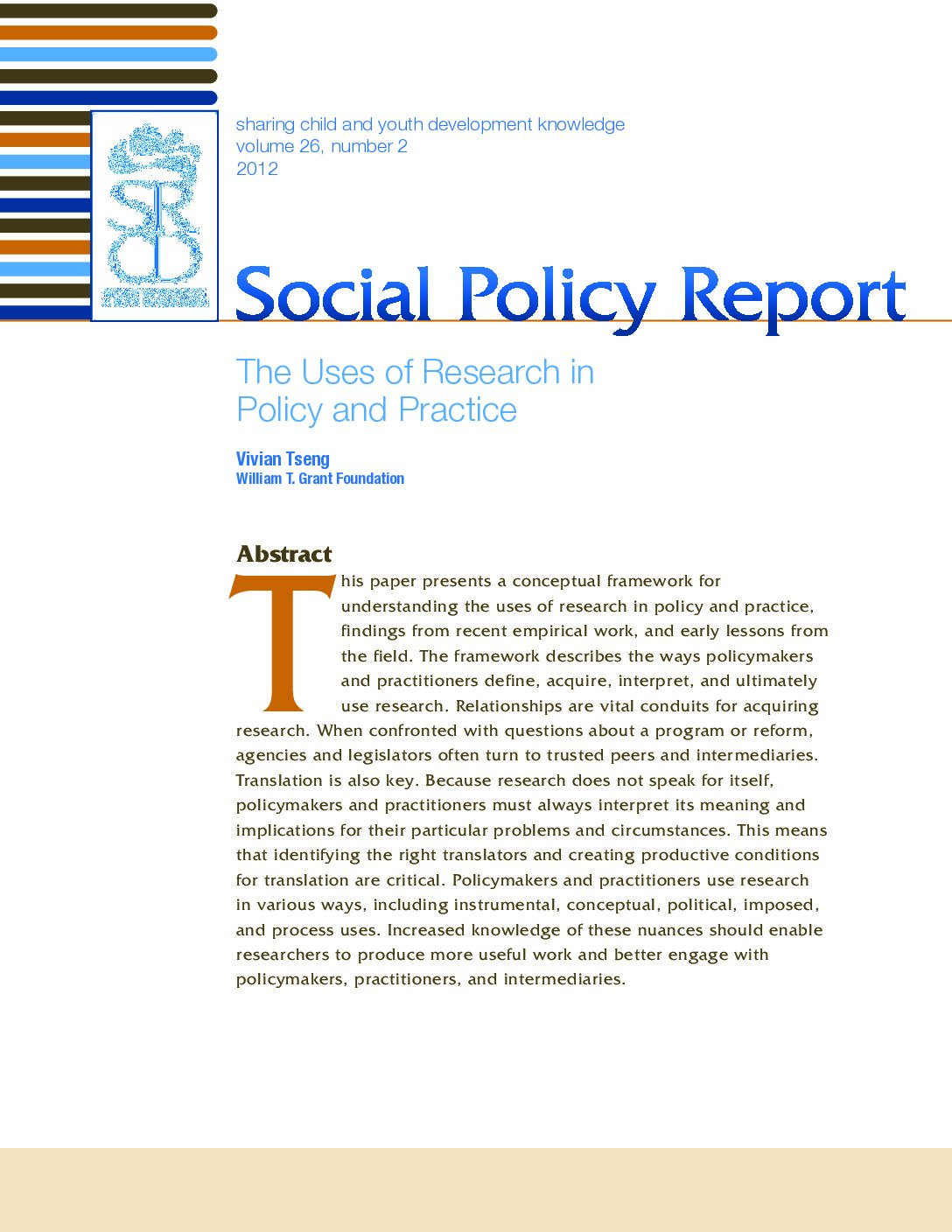Abstract
This paper presents a conceptual framework for understanding the uses of research in policy and practice, findings from recent empirical work, and early lessons from the field. The framework describes the ways policymakers and practitioners define, acquire, interpret, and ultimately use research. Relationships are vital conduits for acquiring research. When confronted with questions about a program or reform, agencies and legislators often turn to trusted peers and intermediaries. Translation is also key. Because research does not speak for itself, policymakers and practitioners must always interpret its meaning and implications for their particular problems and circumstances. This means that identifying the right translators and creating productive conditions for translation are critical. Policymakers and practitioners use research in various ways, including instrumental, conceptual, political, imposed, and process uses. Increased knowledge of these nuances should enable researchers to produce more useful work and better engage with policymakers, practitioners, and intermediaries.






